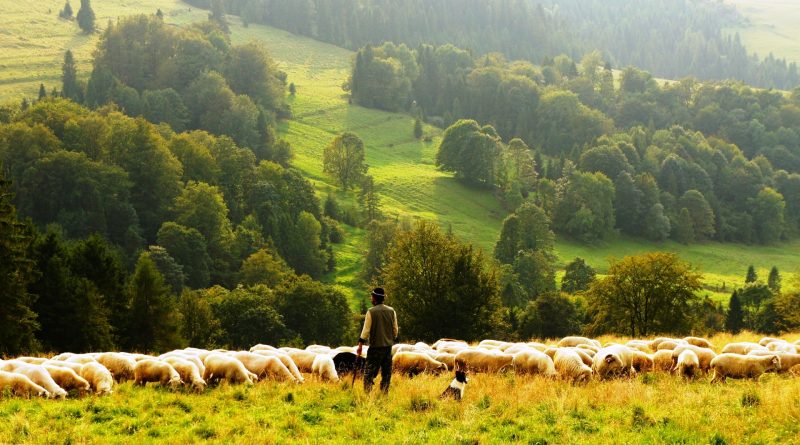The PNRR for inland and rural areas
The PNRR for inland and rural areas
The PNRR, which is part of the European program known as Next Generation EU, a fund for European recovery worth 750 billion euros (also known as the Recovery Fund), must play a decisive role towards that Ecological Transition that identifies a Social and Economic Conversion towards a real Green economy and in implementation of the EU Biodiversity Strategy, the EU Farm to Fork strategy and the EU Framework for energy conversion and greenhouse gas reduction.
In summary, three actions must be identified that must be mutually integral and interactive, namely: Responsible Rurality Income, Rural Energy Plan and Internal Areas Strategy.
Responsible Rurality Income
The Responsible Rural Income (RRI) must be a measure to support young agricultural entrepreneurs for their return to the countryside and their active ecological presence.
The RRR must summarize a series of measures:
1. Monthly income to young entrepreneurs who set up farms for a period of 30 years;
2. Interest-free financing (guaranteed by the state) for the purchase of the funds on which they settle or, alternatively, rent of the funds for a period of 99 years with the state contribution of 80%;
3. Contribution of 80% (with 20% at zero interest to be returned in a maximum period of 30 years) for the construction or renovation of Rural Buildings for both residential and business needs;
4. Obligation to cultivate on farms, in addition to ordinary agricultural crops, an area of trees (fruit, forest, etc.) equal to at least 40% of the utilized agricultural area (UAA);
5. Obligation to carry out fire protection and fire protection works in the farms and to carry out all useful interventions to fight fires;
6. Absolute prohibition of the use of fire in cultivation techniques or any other company operation.
Rural Energy Plan
The Rural Energy Plan (REP) is a measure, which goes alongside the Integrated National Plan for Energy and Climate 2030 (PNIEC), giving it completeness and contributing to a greater production of renewable energy through Distributed Generation (GD).
The REP, taking into account the need to achieve the objectives of the 2030 Framework for climate and energy, must be achieved by following the following
criteria:
1. must be structured according to the maximum criterion of Distributed Generation (GD), therefore with the construction of numerous small plants;
2. must be carried out without soil consumption, as defined by both ISPRA and the relevant EU directives;
3. it must provide for systems that do not affect the rainfall regime and the run-off times of the runoff water (as is the case for large photovoltaic systems), with consequent negative repercussions on the water regime and further loss of soil;
4. in accordance with the 2020 EU Farm to Fork strategy, it must not affect the already delicate issue of the availability of food and resources for the next few years, to which Agenda 2030 dedicates in particular objectives 2, 7, 11, 12 and 15 ;
5. finally, and last but not least, the production of energy deriving from these small plants must not interfere with biodiversity, in accordance with the provisions of the EU Directive of 2020 on the subject;
The priority objective of the PER must be that, subject to the previous conditions, to achieve two objectives for farms, which added together, must result in a substantial income integration. In this sense, the production of electricity, according to the GD criterion, must become a further service to be added to the multifunctionality of farms:
a) the first objective must be that of the energy autonomy of the farm;
b) the second objective must be that of converting the engines to electricity, according to the provisions of the EU Framework;
c) the third objective, applying the criterion of multifunctionality, must be that of the integration of the PLV through the sale of electricity with agricultural tax regime.
In order for the action for the energy autonomy of the farm to be rapid and effective, it must be supported by a very lean authorization and procedural system, especially for low-power plants and widespread technical assistance throughout the territory. In accordance with the provisions of the Superbonus which, we remind you, is a benefit provided by the Relaunch Decree which raises the deduction rate of expenses incurred from 1 July 2020 to 30 June 2022, for specific interventions in the field of energy efficiency, to 110%, of anti-seismic interventions, installation of photovoltaic systems or infrastructures for recharging electric vehicles in buildings, it is believed that this measure should extend to the production of electricity and electric motors in rural areas.
Internal Areas Strategy
The Strategy for Inland Areas (IAS) must be aimed at promoting the settlement of young people or young families in the two million unused houses in 5,627 villages, increasingly empty and depopulated.
The strategy aims to establish a new housing equilibrium within the country, decongesting medium and large energy-hungry cities and recovering small inhabited centers, at the same time favoring a more widespread housing presence on the territory in favor of the principles of Economy Circular and Agroecology, sectors on which to activate or speed up Draft Laws on the subject.
The goals for Sai must be the following:
1. Interest-free financing (guaranteed by the state) to young people or young couples for the purchase or renovation of properties in small villages or, alternatively, renting them for a period of 99 years with the state contribution of 80 %;
2. Interest-free financing (guaranteed by the state) to young people who intend to open a job based in one of the small villages;
3. Non-repayable birth premium (one-off);
4. Support for school costs (up to compulsory school) for the children of residents of small villages;
5. Support for travel expenses on public transport for school / work.
Guido Bissanti

